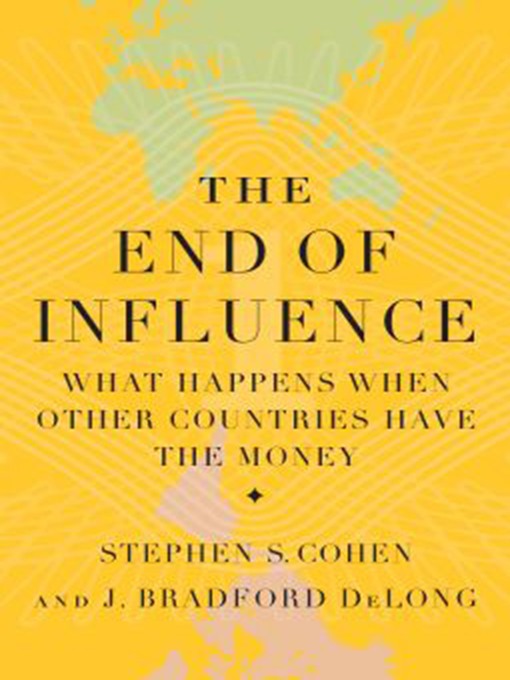- New eBook additions
- All About Education
- Cozy ebooks for Fall
- Made in West Virginia
- A Shore Thing
- First in the series
- Strange New Worlds
- Worlds of Fantasy
- Most popular
- Available now
- Try something different
- Just Plain Good
- See all ebooks collections
The End of Influence
What Happens When Other Countries Have the Money
1 of 1 copy available
1 of 1 copy available
America, Cohen and DeLong argue, will no longer be the world's hyperpower. It will no longer wield soft cultural power or dictate a monolithic foreign policy. More damaging, though, is the blow to the world's ability to innovate economically, financially, and politically. Cohen and DeLong also explore American's complicated relationship with China, the misunderstood role of sovereign wealth funds, and the return of state-led capitalism.
An essential read for anyone interested in how global economics and finance interact with national policy, The End of Influence explains the far-reaching and potentially long-lasting but little-noted consequences of our great fiscal crisis.
-
Creators
-
Publisher
-
Release date
January 5, 2010 -
Formats
-
Kindle Book
-
OverDrive Read
- ISBN: 9780465020072
-
EPUB ebook
- ISBN: 9780465020072
- File size: 169 KB
-
-
Languages
- English
-
Reviews

Loading
Formats
- Kindle Book
- OverDrive Read
- EPUB ebook
subjects
Languages
- English
Loading
Why is availability limited?
×Availability can change throughout the month based on the library's budget. You can still place a hold on the title, and your hold will be automatically filled as soon as the title is available again.
The Kindle Book format for this title is not supported on:
×Read-along ebook
×The OverDrive Read format of this ebook has professional narration that plays while you read in your browser. Learn more here.
